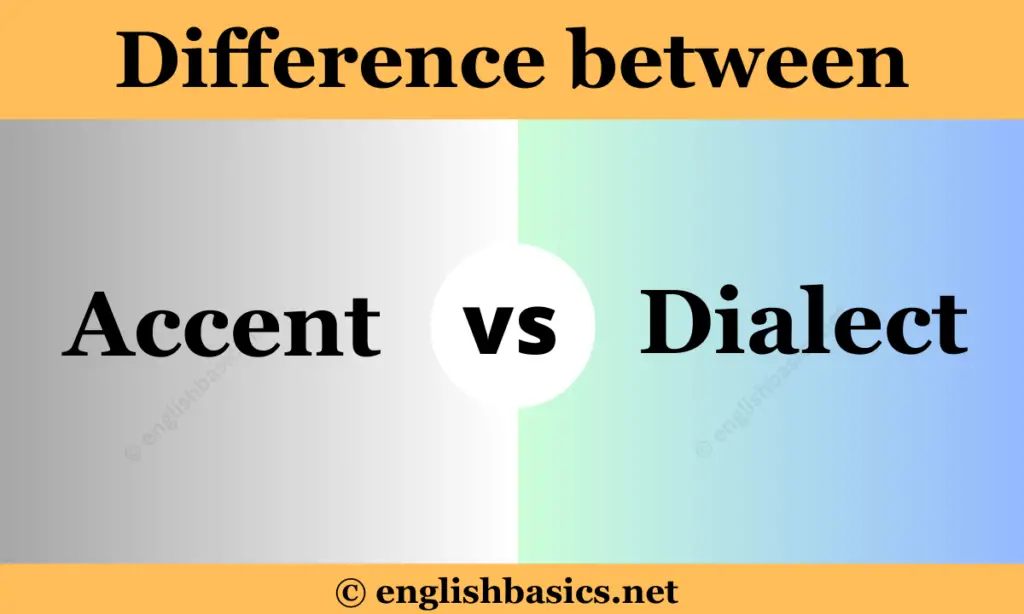Accent and dialect are often used interchangeably, but they refer to two different aspects of language. Let us discuss the difference between accent and dialect.

Accent vs Dialect – What’s the difference?
An accent refers to how a person pronounces words in a language. It can be influenced by a person’s native language, geographical location, social background, and other factors. For example, a person from the United States might have a distinct accent when speaking Spanish, while someone from Spain might have a different accent when speaking the same language.
A dialect, however, refers to a specific variety of languages spoken in a particular region or community. Dialects can vary in terms of vocabulary, grammar, and pronunciation. For example, many different English dialects are spoken worldwide, such as American English, British English, and Australian English.
It’s important to note that accent and dialect are not the same things. A person can have a distinct accent in a language without speaking a dialect, and vice versa. An accent is a feature of an individual, while a dialect is a feature of a group.
When it comes to accent, it’s important to remember that there is no such thing as a “correct” accent in a language. Every accent is valid and represents a unique way of speaking. Some people may prefer one accent over another, but this is a matter of personal preference and should not be used to judge or stereotype individuals.
However, when it comes to dialect, particular dialects may be considered standard or official in a given region or country. For example, Standard American English is the dialect that is typically taught in American schools and is used in most formal settings. However, it’s important to remember that non-standard dialects are just as valid and important as standard dialects and should be respected and valued.
What is an example of a dialect?
An example of a dialect would be Southern American English. Southern American English is a dialect spoken by many people in the southern region of the United States. It has a distinct set of pronunciations, grammar, vocabulary, and idiomatic expressions that differentiate it from other dialects of American English, such as Standard American English or Northern American English.
For example, in Southern American English, the “r” sound is typically not pronounced at the end of words. Additionally, Southern American English speakers may use unique words and phrases, such as “y’all” as a second-person plural pronoun or “fixin’ to” to indicate that they are about to do something.
It’s important to note that Southern American English is not a monolithic dialect, and there are variations among different states and even within the same state.
Is American English a dialect or a language?
American English is a dialect of the English language.
A dialect is a specific variety of a language that is spoken in a particular region or community. Dialects can vary in terms of vocabulary, grammar, and pronunciation. American English is one dialect of the English language, spoken primarily in the United States, which has its own unique features and variations.
It’s important to note that American English is not a monolithic dialect, and there are variations within the United States. For example, Southern American English, Northern American English, African American English, and New York City English are all different dialects of American English.
In contrast, a language is a complete and complex communication system used by a group of people, including grammar, vocabulary, and syntax. English is a language with multiple dialects spoken worldwide, including American English, British English, and Australian English, among others.
Conclusion
In conclusion, accent and dialect are two distinct aspects of language, with accent referring to how a person pronounces words and dialect referring to a specific variety of a language spoken in a particular region or community. It’s important to remember that every accent is valid and that non-standard dialects are just as important as standard dialects.